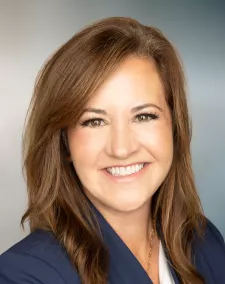
Spike in drug recalls warrant the question: How can medications be made safer? | Causes, Not Just Cases®
After being scrutinized for years for being too lax, the FDA announced last week that it plans to “modernize” its fast-tracked 510(k) approval program for medical devices. Currently, this program doesn’t require clinical trials for new products that it believes are similar enough to previously approved devices to justify quickly placing them on the market. Even more disturbing, when older devices are recalled or defective, similar fast-tracked products that were modeled in their likeness aren’t automatically pulled from the market or required to undergo further testing for safety.
While it’s promising that the FDA agrees that its approval process for medical devices could use some revamping, the agency shouldn’t stop there. The safety of pharmaceutical drugs is just as important and, as the numbers suggest, there is definite room for improvement.
Second Highest Recorded Level of Prescription Drug Recalls in 5 Years
According to the quarterly U.S. Recall Index published by Stericycle ExpertSolutions, a startling 92 medical drug recalls were recorded in the third quarter of 2018 alone— the second highest quarter recorded since 2013. Of those 92 recalls, 78 percent were nationwide. In all, hundreds of medical drugs are recalled from the U.S. market every year for a variety of reasons. Sometimes medications are pulled due to labeling errors that incorrectly disclose the drugs’ contents. Other times, a recall may be ordered to remove drugs that were inadvertently contaminated with foreign materials. And other times still, medical drugs may be pulled due to the fact that they are not safe and may do more harm than good if prescribed and taken by patients.
The numbers aside, consider this on a human level. All patients contend with confusion and uncertainty after being diagnosed with a medical condition, but at the very least we’d all like to assume that our medication will make us better, not worse. For some patients taking certain drugs, that sadly won’t be the case. It’s simply not enough to remove drugs from the market when it becomes clear that they are dangerous. Doing so offers little solace to patients who have already taken and suffered severe complications caused by their medication.
Serious Safety Risks
Take, for example, the multiple sclerosis (MS) medication Zinbryta, which was approved by the FDA in 2016 and voluntarily withdrawn from the market within two years — long enough to allegedly cause severe inflammatory brain disorders in multiple patients, some of whom died from the complications. When it first hit the market, Zinbryta was marketed as an aggressive option for patients whose symptoms didn’t respond to other medications. The FDA stipulated that Zinbryta had “serious safety risks” warranting a black box warning for potentially life-threatening liver injuries and other possible complications to the colon, skin and lymph nodes. Shortly after being prescribed and taken by patients, however, concerns began to surface that the risks, including at least three alleged deaths, outweighed any potential benefit. Zinbryta’s manufacturers Biogen Inc., and AbbVie Inc., ultimately withdrew the drug from the global market in April 2018, urging doctors to transition their patients to other, seemingly safer, medications.
Similarly, Teva Pharmaceuticals announced a voluntary recall last week of two high blood pressure medications that may be linked to a heightened risk of cancer. The recall was the latest in a series this year involving Teva’s Valsartan-containing drugs, and affected all tablets containing a combination of Amlodipine/Valsartan/Hydrochlorothiazide and Amlodipine/Valsartan. The safety of Valsartan first came into question after it was revealed that the drug contained high levels of N-nitroso-diethylamine (NDEA). The International Agency for Research on Cancer determined that the potentially toxic ingredient may cause cancer in humans.
Reporting Complications
Being diagnosed with a medical condition is scary enough. Patients shouldn’t have to also be scared of their treatments. or left wondering why more wasn’t done on the front end to protect them and the thousands of others who are in similar situations. If the FDA is willing to overhaul its approval process for medical devices, then what better time than now to do the same for medical drugs?
With pharmaceutical recalls on the rise, that’s a question that we all must ask ourselves in order to demand more from the FDA and medical drug manufacturers.
If you or a loved one are experiencing complications caused by a medical drug or device, I encourage you to report the issue to the FDA by submitting, or having your doctor submit, a Voluntary Reporting Form.
Subscribe to our blog if you’d like to have more content like this sent directly to your inbox.